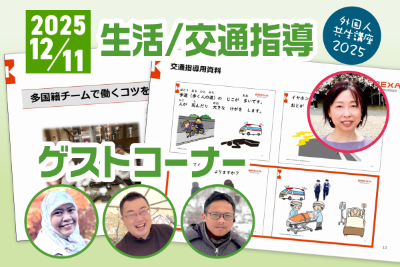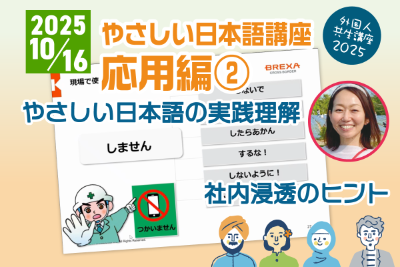- やさしい日本語
- ひらがなをつける
- Language
We provide multilingual content through machine translation. Translation accuracy is not 100%. About the multilingualization of the JAC website
- About JAC
- JAC Membership Information
- Specified Skilled Worker Acceptance
- Specified Skilled Worker Overview of the system
- 10 Mandatory Assistance for Foreigners
- Online individual consultation
- Seminar on Coexistence with Foreign Nationals
- Leading examples of host companies
- Case studies collection "Visionista"
- Foreigner's Voice
- Foreign Resident Acceptance Manual / Q&A
- Useful column "JAC Magazine"
- Acceptance support services
- Specified Skills Acceptance Support Service
- Skills improvement support
- Online Special Education
- Skill training
- Japanese Language Course
- Education and Training Support
- Subsidy system for obtaining qualifications
- Support for creating a comfortable workplace
- Temporary Return Support
- CCUS charge support
- Support system for promoting the accumulation of employment history
- Post-acceptance training
- Compensation system for Specified Skilled Worker (i)
- Daily life support
- Medical interpretation support
- Support for daily life problems
- freeJob matching
- The Specified Skills Evaluation Exam
- Home
- JAC Magazine
- Specified Skilled Worker System Key Points
- 10 differences between Specified Skills and Technical Intern Training. Know the advantages and precautions before considering them.
- Home
- JAC Magazine
- Specified Skilled Worker System Key Points
- 10 differences between Specified Skills and Technical Intern Training. Know the advantages and precautions before considering them.

10 differences between Specified Skills and Technical Intern Training. Know the advantages and precautions before considering them.
I wrote the article!
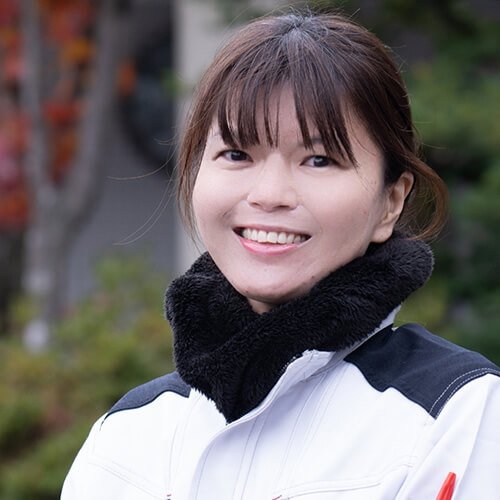
(One company) Japan Association for Construction Human Resources
Chief of Research and Development Department / Administration Department / Public Relations Department
Motoko Kano
(Kano Motoko)

Hello, this is Kano from JAC (Japan Association for Construction Human Resources).
When you want to accept foreign workers, you think of "Specified Skills" and "Technical Intern Training".
The two are sometimes confused and perceived, but the contents are completely different.
Specified Skills and Technical Intern Training have many differences, such as their objectives and skill levels.
This time we will compare the differences between Specified Skills and Technical Intern Training.
Knowing the strengths and precautions of each will guide your decision on which system to use.
10 differences between Specified Skills and Technical Intern Training explained! Comparison of systems
Specified Skills and Technical Intern Training are each one of several status of residence for foreigners.
Specified Skills and Technical Intern Training are easily confused, but they differ significantly in content and purpose, so care must be taken when accepting.
Here are 10 typical differences between Specified Skills and Technical Intern Training.
①Purpose
Specified Skills and Technical Intern Training are the same in terms of "accepting foreigners in the enterprise", but the purpose of acceptance is different.
Specified Skills is a system to compensate for the labor shortage in the Japan.
Technical Intern Training is a system for international contribution that allows students to bring the skills they have acquired in Japan back to their home countries and spread them.
② Work content
Specified Skills determines the work that can be done by the work category, while Technical Intern Training determines the work that can be done by the job type.
Specified Skills is a system to ensure labor shortages in Japan, so it is possible to work in a relatively wide range of job categories.
On the other hand, Technical Intern Training come to learn highly specialized work, so they will work in the job type work unit corresponding to the skills they have acquired.
③ Occupation
Specified Skills and Technical Intern Training have different accepted job titles.
There are 16 Specified Skilled Worker (i) and 11 Specified Skilled Worker (ii) positions that can accept Specified Skills.
Technical Intern Training There are 90 occupations.
*Both are as of May 2024
④ Skill level
Specified Skills and Technical Intern Training require different skill levels.
Specified Skills requires that both No. 1 and No. 2 have a certain level of knowledge in the field of work.
In contrast, Technical Intern Training do not need to acquire specific skills before entering the country.
⑤Exam
To be eligible for Specified Skills certification, you must pass the "The Specified Skills Evaluation Exam" and the "Japanese Language Proficiency Test."
The purpose of Specified Skills is to have people become "ready to work" to solve the labor shortage in Japan, so only people who have reached a certain level can become Specified Skilled Worker.
In the case of Technical Intern Training, only nursing care occupations Japanese required to be at the N4 level of the proficiency test, but there is no special exam for other occupations.
⑥Work style
Both Specified Skills and Technical Intern Training are subject to Japan labor legislation.
However, overtime work and late-night work are not allowed in principle for Technical Intern Training, and as an exception, they can be done to the extent necessary to acquire skills.
On the other hand, Specified Skilled Worker System is a system for work, so overtime work and late-night work can be done within the scope of labor-related laws and regulations.
⑦ Period of stay
The period of stay for Specified Skills is a total of 5 years for Specified Skilled Worker (i), and every 3 years, 1 year, or 6 months for Specified Skilled Worker (ii), and there is no upper limit for renewing the period of stay.
Technical Intern Training is limited to 1 year for No. 1, 2 years for No. 2, and 2 years for No. 3 (up to 5 years in total).
⑧ Accompanying family members
Technical Intern Training and Specified Skilled Worker (i) cannot be the main body of the family stay, and in principle, family members cannot be brought along.
For Specified Skilled Worker (ii), if you meet the requirements, you are allowed to bring your family (spouse, children) with you.
⑨Number of accepted students
Specified Skilled Worker System sets the number of people accepted by each industry field.
As long as it is within the above restrictions, there is basically no limit to the number of people each company can accept, as this is a system to "make up for labor shortages."
However, in the construction industry, quotas are set on a company-by-company basis, and in the nursing care industry, quotas are set on a business-by-business basis.
Specified Skills in the field of construction stipulates that Specified Skilled Worker (i) "the number of foreign construction workers (and the total) shall not exceed the number of full-time employees."
Technical Intern Training is focused on getting people to learn skills, so you need to keep the number of people you can teach well.
Therefore, Technical Intern Training has a quota for the number of employees according to the number of employees for each company size.
See also here for the number of people accepted for Specified Skills.
What is the number of people accepted for Specified Skilled Worker? Is there a limit to the number of people in the construction field?
⑩ Related organizations
Specified Skills is basically completed between the two parties because the company and the Specified Skilled Worker are in an "employment relationship". (A Registered Support Organizations who supports life in Japan may intervene.)
In the case of Technical Intern Training, the number of organizations and parties that fall between the company and the trainee, such as the supervising organization, the Technical Intern Training organization, and the sending organization, is large.
What to think about in terms of the difference between Specified Skills and Technical Intern Training
While Specified Skills can provide immediately employable people to make up for labor shortages, they also require high levels of skills and Japanese language proficiency, meaning the number of applicants tends to be small to begin with.
However, in the case of Specified Skills "No. 2", there is no upper limit on the renewal of the period of stay, and it is attractive that it is firmly rooted in the Japan, such as being allowed to bring a family member.
There is also the possibility of taking advantage of overseas knowledge and cultural differences to expand business globally.
In the case of Technical Intern Training, there are no exams, so the population is large and people are easy to gather.
Since they are not skilled in any particular skill, it may be a little difficult to teach them in Japanese, but you can expect the adaptability and ability to absorb that only beginners can have.
It also attracts young people because no experience is required and family members are not allowed.
Technical Intern Training can also be migrated to Specified Skills. How to do it?
One of the things that trainees tend to worry about in Technical Intern Training is that even if they teach the technique carefully, they will return to their home country.
In the first place, the purpose is to "bring the skills you have learned back to your home country", but as you carefully teach them from scratch through practical training, it will be a natural flow to think that you want them to continue to work in the future.
Technical Intern Training Even in life, many people feel that it would be a waste to return to their home country when they have gotten used to Japan.
The solution to such a problem unique to Technical Intern Training is the transition from Technical Intern Training to Specified Skills.
Technical Intern Training students who have completed the Technical Intern Training (ii) in good standing for at least 2 years and 10 months can only move to Specified Skilled Worker (i) in the same field of work.
In order to obtain a Specified Skilled Worker (i), a "proficiency test" and a "Japanese ability test" are required, which are also exempt.
As a transfer method, apply for permission to change status of residence from a status of Technical Intern Training to a status of residence of "Specified Skilled Worker (i)".
As for the application period, you can move to Specified Skilled Worker (i) by submitting the "Application for Permission to Change of Status of Residence" and the necessary documents to obtain a "Specified Skilled Worker (i)" to the Regional Immigration Services Bureau of jurisdiction before the end of the period of Technical Intern Training (ii) stay.
Please note that when hiring in Specified Skills in the construction field, it is necessary to obtain approval of the acceptance plan in advance, so the acceptance plan certification procedure must be carried out before the above procedure.
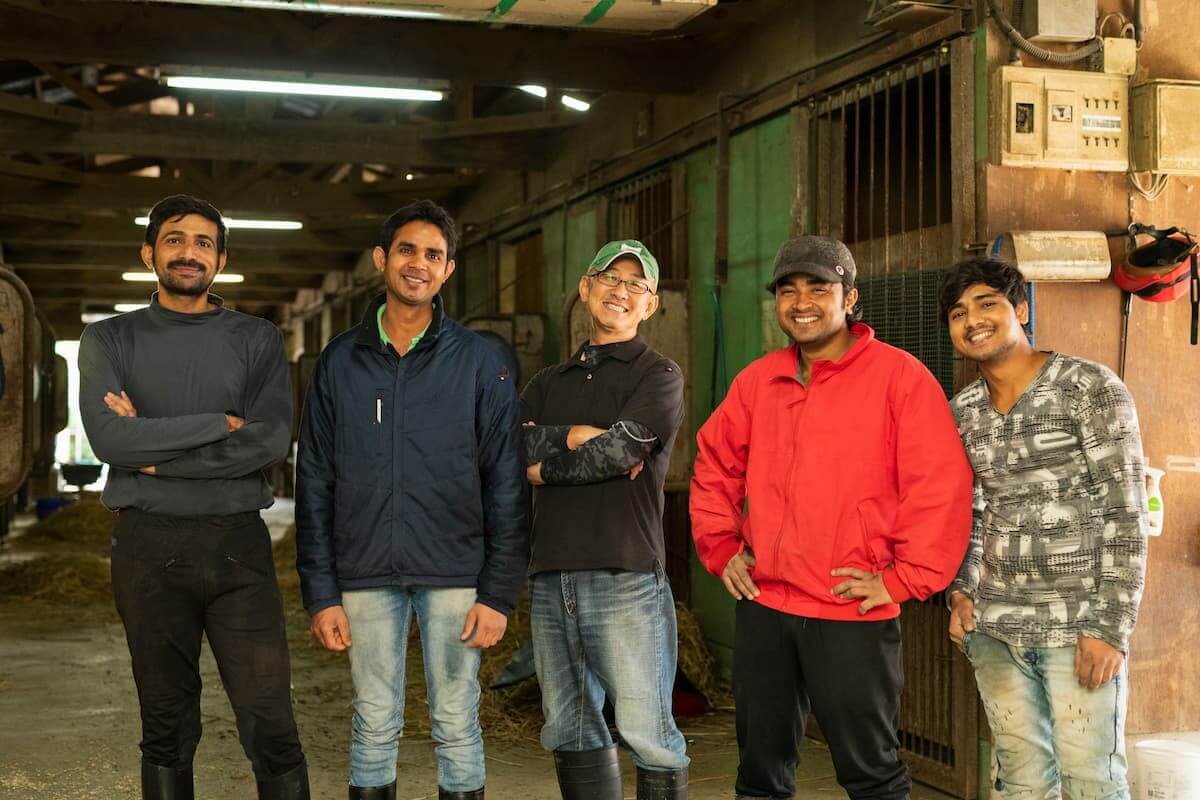
Understand the difference between Registered Support Organizations and supervising organization
Specified Skills and Technical Intern Training have their own associations, which are also easily confused.
Registered Support Organizations is a support organization in Specified Skilled Worker System.
It is an organization that supports all aspects of life in the Japan, from life to work in Specified Skilled Worker, and corporations for profit such as corporations can also be Registered Support Organizations.
You are free to outsource or in-house support work, so you do not need to use Registered Support Organizations if you want to perform support work within the company where Specified Skilled Worker is employed.
A supervising organization is an organization that aims to "supervise the company where the trainee is conducted" by checking whether appropriate training is being conducted in the Technical Intern Training.
Supervising organizations are operated by cooperatives, etc., which are non-profit-making corporations, and corporations for profit such as corporations cannot be supervising organizations.
In addition, the supervising organization will audit the training period at least once every three months and provide guidance if necessary.
Summary: While there are many differences between Specified Skills and Technical Intern Training, there are cases where they can be migrated
As a public image, "Specified Skills" and "Technical Intern Training" tend to be lumped together.
However, the purpose and content of the system are often different, and the two are completely different.
The purpose of Specified Skills is to enable people to become immediately effective in resolving Japan's labor shortage.
Therefore, they are required to meet a certain level of skill in a specific industrial field and also have a certain level of Japanese language proficiency.
On the other hand, Technical Intern Training is a system aimed at promoting international cooperation through the transfer of skills, etc.
There are many types of occupations accepted, so it is easy to work on for those who want to acquire skills.
Technical Intern Training has a fixed duration, but you can move to Specified Skilled Worker (i) if the job title is the same.
If you become a Specified Skilled Worker (ii), there is no upper limit on the renewal of your period of stay, and you are allowed to bring your family along, so you can continue to work for a long time.
Specified Skills and Technical Intern Training are easy to mistake for related organizations, but they also have different purposes and obligations, and the organizations themselves are also different.
If you are a company that is considering accepting Specified Skilled Worker in the construction industry, please feel free to contact JAC!
We also introduce Specified Skilled Worker.
[Please read this article]
What are Specified Skills? A detailed explanation of the process for accepting foreigners and the support organizations
*This column was written based on information from May 2024.
The author of this article

(One company) Japan Association for Construction Human Resources
Chief of Research and Development Department / Administration Department / Public Relations Department
Motoko Kano
(Kano Motoko)
Born in Aichi Prefecture.
He is in charge of public relations, research and investigation, and is the person behind social media.
We update our social media accounts daily with the desire to make people fall in love with Japan, to spread the appeal of construction from Japan to the world, and to ensure that Japan's construction industry continues to be the industry of choice around the world.
He is also engaged in research into the feasibility of implementing skills evaluation exam in Asian countries, and is conducting interviews with local organizations in each country.
Related articles
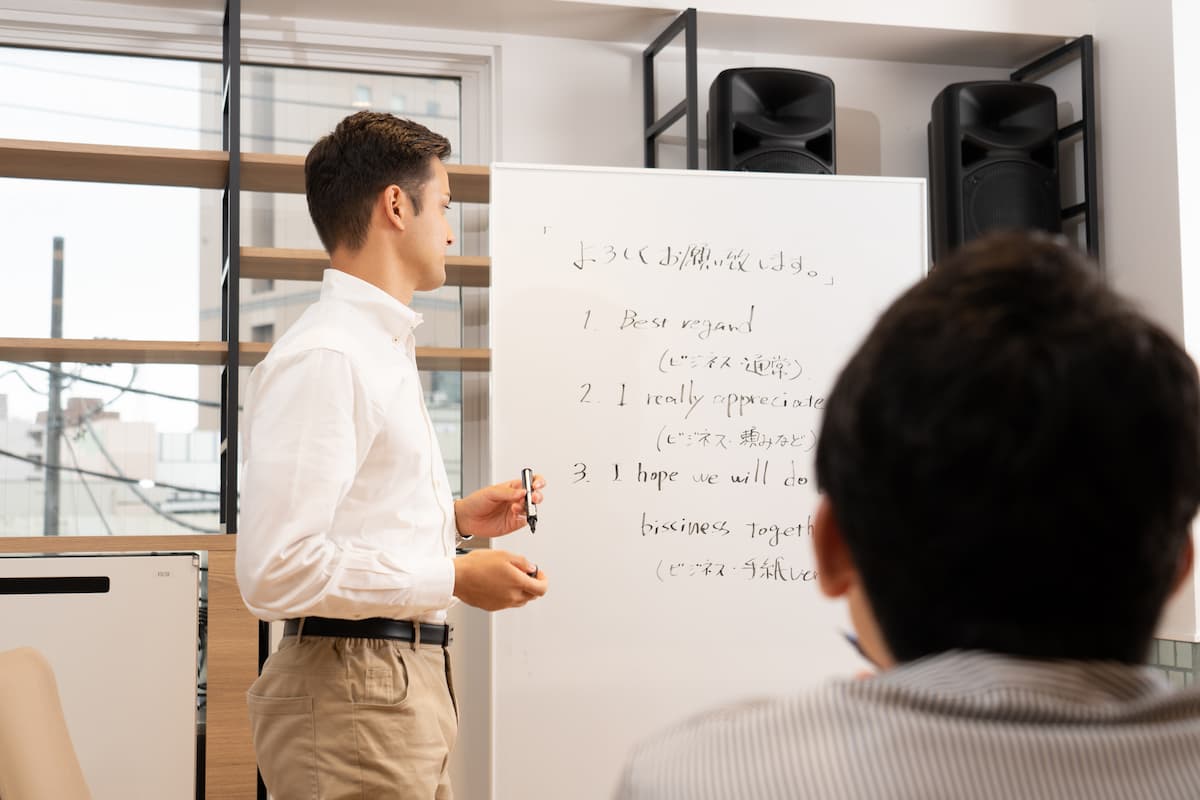
What is the estimated cost to pay for Registered Support Organizations? See how you can support yourself
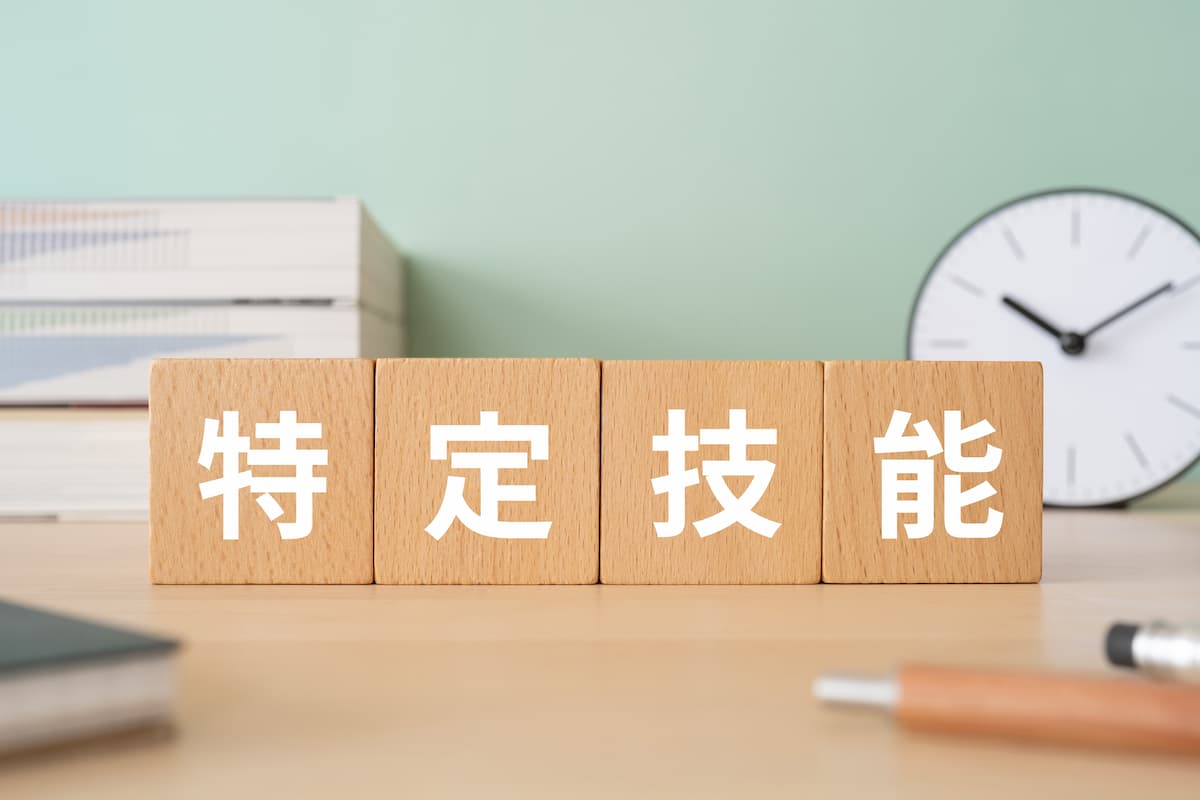
What is Registered Support Organizations? Introducing the content of support in an easy-to-understand manner

What is the "life orientation" that is carried out when hiring a Specified Skilled Worker?

What is the number of people accepted for Specified Skilled Worker? Is there a limit to the number of people in the construction field?













